What is an emergency pipe plug (OPAP)?
This anti-pollution pipe stopper is actually an emergency pipe plug. Permanently placed in the pipe, it is triggered in case of a disaster. Indeed, in case of fire, leak or other, it is essential to be able to contain any spill of toxic liquid or other in the pipes of the site without polluting the whole network.
The inflatable pipe plug is installed in the upper part of the pipe without any metal reinforcement. It maintains itself after bending and installation. It does not disturb the flow.
This product complies with article 13 of the decree of 05/08/2002 concerning the prevention of risks in companies (FRANCE). The latter requires establishments to equip their effluent and rainwater collection networks with blocking systems to prevent any accidental pollution.
The anti-pollution plugs are suitable for all diameters from 100 to 1,000 mm. For larger diameters, there is another range of pipe plug: OFR.
Moreover, its installation is simple and does not require major civil engineering work.
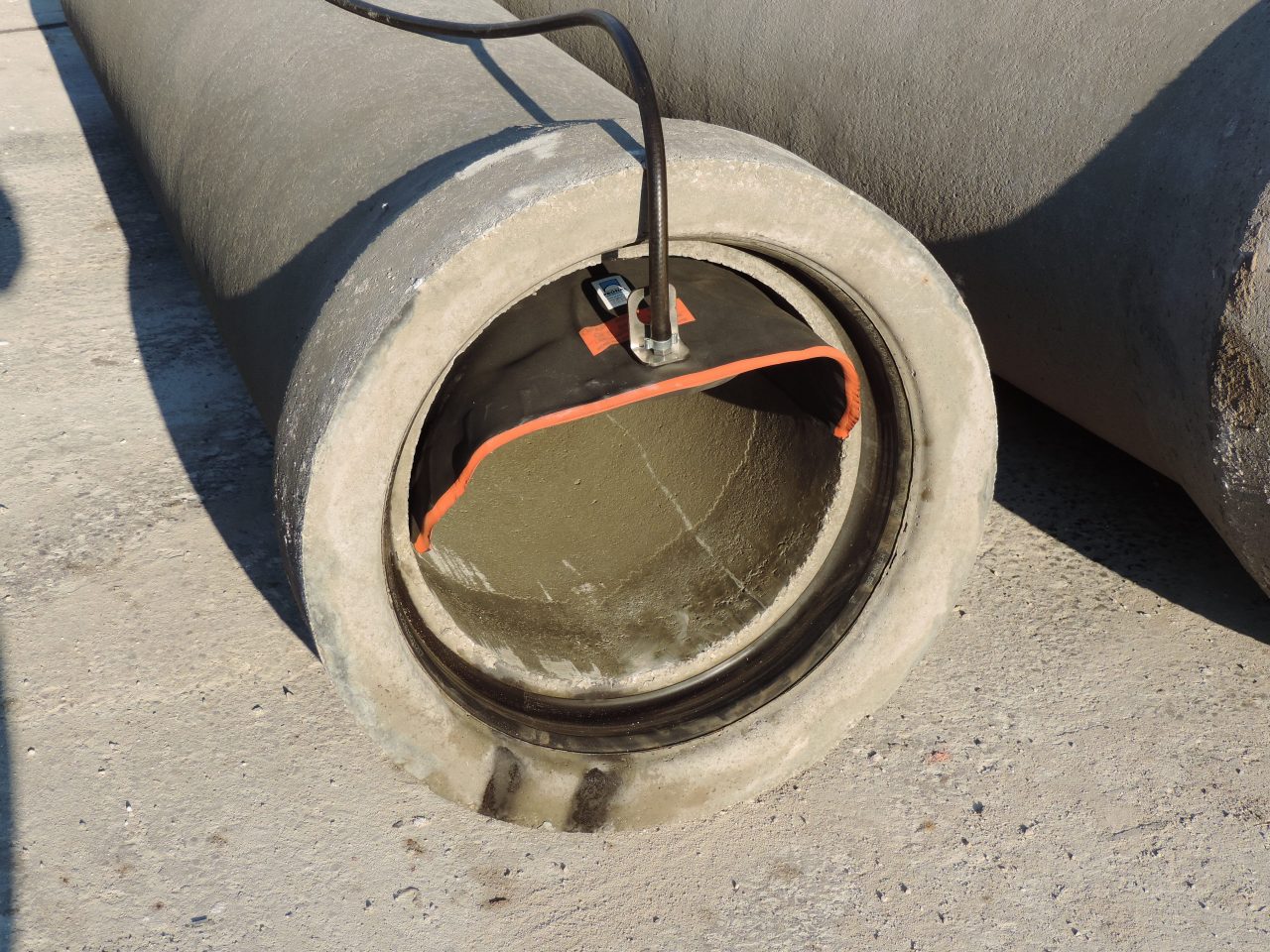
How to install an emergency pipe plug?
Precautions for use
- To avoid damaging the product, we remind you never to use the plug on surfaces that are too abrasive or sharp.
- Moreover, concerning inflation and deflation, be careful to use only the prescribed connections.
- Also, be sure to respect the inflation ranges and pressures indicated on the plug. Apply the regulations inherent to work in confined spaces.
- Clean the pipe with water before installing the obturator.
- Do not inflate the plug outside the pipe.
- Never place any foreign object between the pipe wall and the plug.
Installation tips
First of all, bend the half-moon shaped plug lengthwise. You don’t need to bend the assembly any more than necessary (diameter slightly smaller than the pipe). For an easier installation, it is helpful to strap the assembly to keep it in shape.
Next, place the assembly at the top of the pipe, with the supply pipe opposite the flow. Make sure the valve assembly is in the pipe.
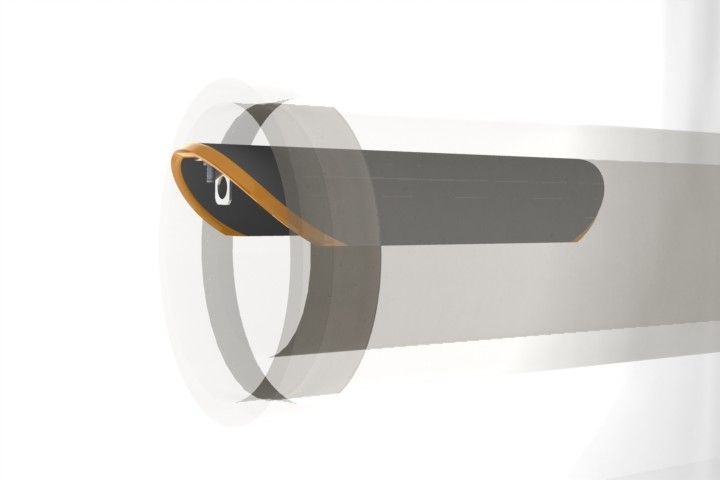
Then, fix the plug to the pipe (fixing bracket on the supply pipe) using a chain of sufficient length to allow the expansion of the obturator. This chain allows the product to be retained when the pipe is fully loaded.
Cut the straps encompassing the assembly and remove the pins.
Finally, connect the pipe plug to the control box using a hose.
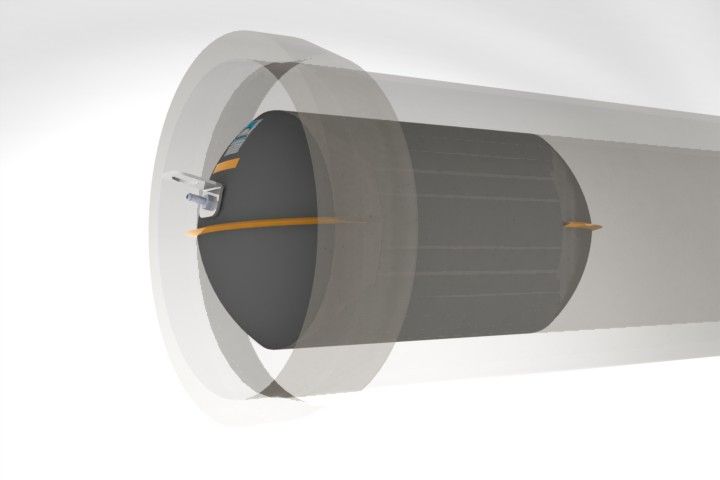
Be Careful to the particular case: when the OPAPs have a diameter higher than 600 mm they are equipped with support legs. Indeed, they are heavier. These support brackets will be useful to leave the plug at the top of the pipe.
Therefore their installation is slightly different:
First: determine the positioning of the lashing hook(s) of the holding bracket(s) on the highest part of the pipe. This distance is determined by the size of the plug. Allow sufficient distance to permit full insertion of the plug into the pipe.
A rectangular section tube resting on the furthest lashing hook will be used to slide the obturator efficiently until it is positioned in its hook. The latter will help to hook the shutter.
Then, secure the shutter with the chain. Finally, remove the tube and hook the second tab.
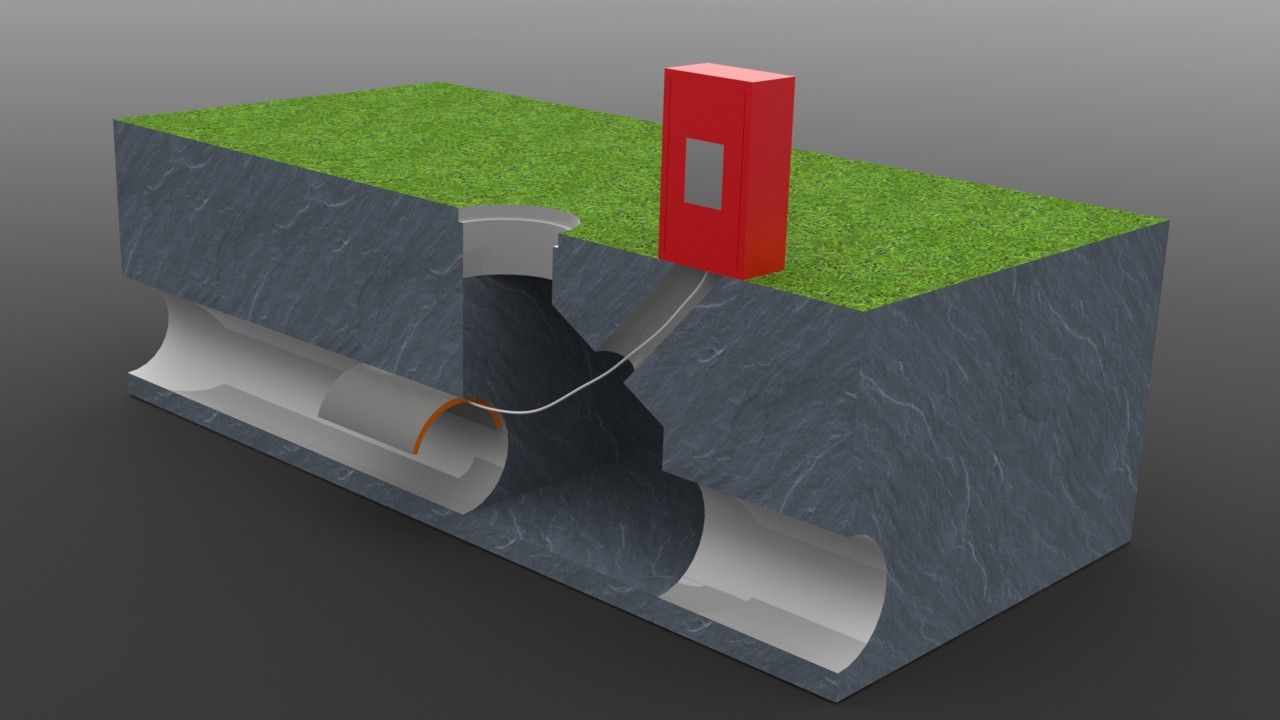
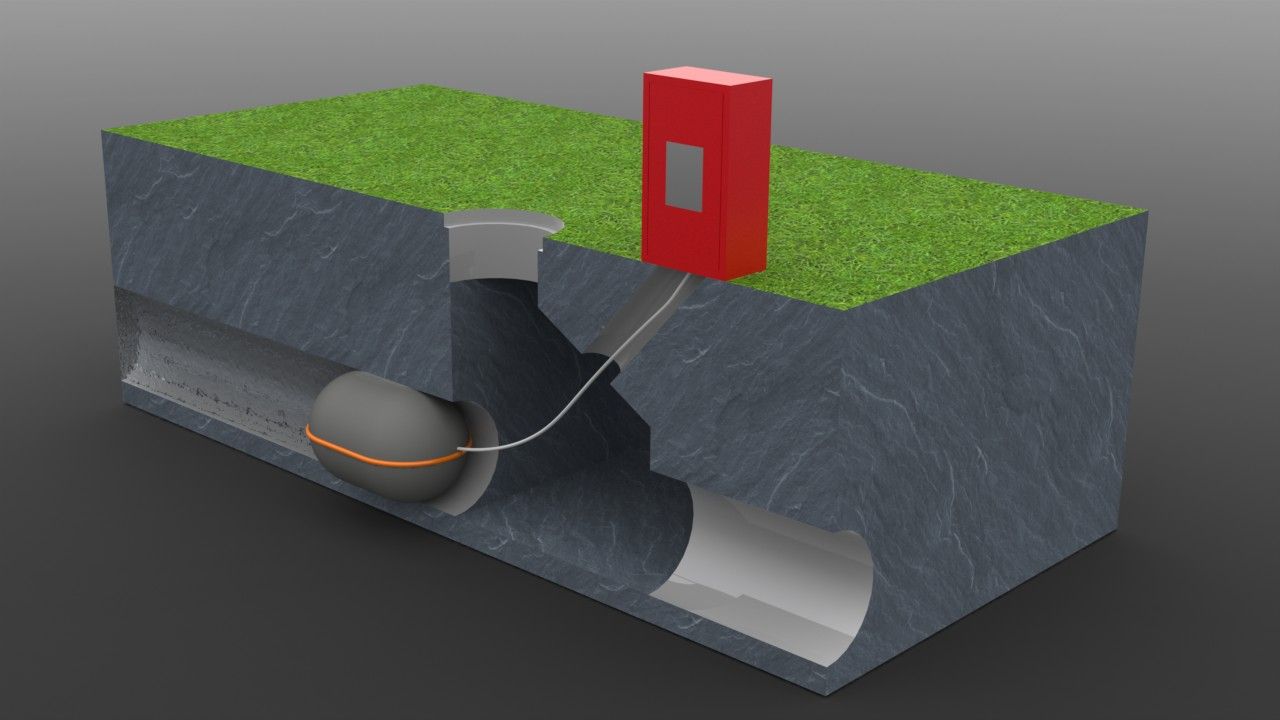
How to trigger an OPAP?
There are 3 standard types of triggering
Manual
The first way is manual:
In case of fire or pollution, it is the operator himself who must go next to the box. He has to break the glass with the hammer. Then he has to open the box with the key hanging inside.
He must then open the nitrogen bottle which will allow the inflation of the shutter. (the inflation stops when the pressure is reached)
Automatically
In the event of a disaster, you only have to press the release button installed beforehand where you want. You do not need to go to the casing.
GSM remote
This last solution is perfect if you are not present on site.
First, send a sms to the card installed in the OPAP control box.
*A code will be given to you during the installation
You will receive an answer “on” when the OPAP is triggered.
After sending the SMS, the OPAP is triggered, the alarm sounds and the obturator inflates in the pipe like an air bag.
Once inflated, the plug ensures the retention of the network to avoid any spill outside the site concerned
To understand even better, watch this video:
Conclusion
It should be noted that it is possible to couple the control box with several obturators, you just need to adapt the size of the nitrogen cylinder.
This anti-pollution shutter allows you to retain all harmful products and then pump them or divert them to a retention basin.
Discover also how to install a standard inflatable pipe plug, OPL !